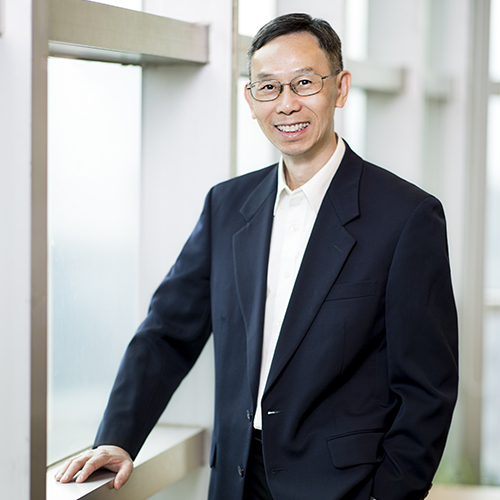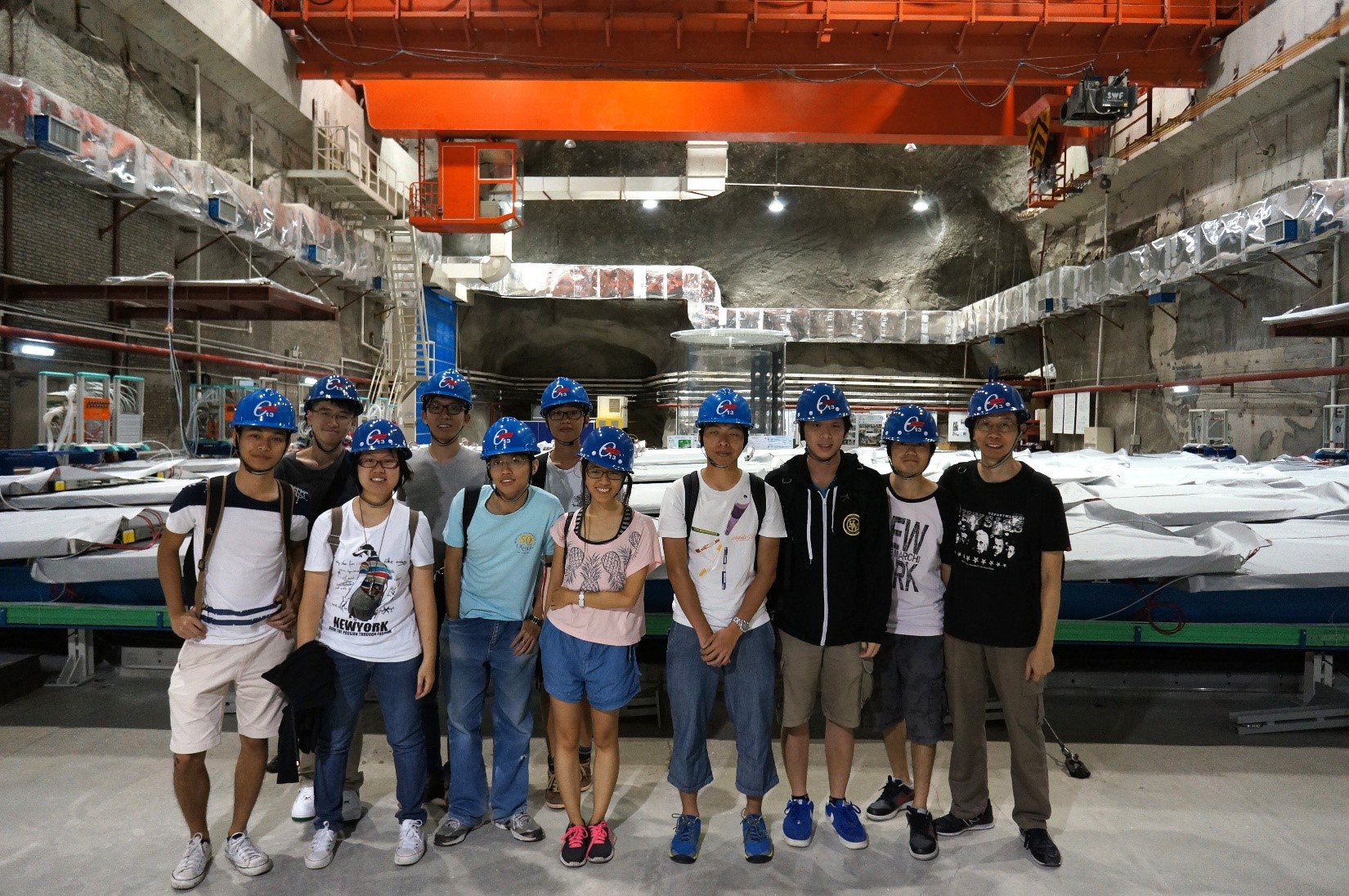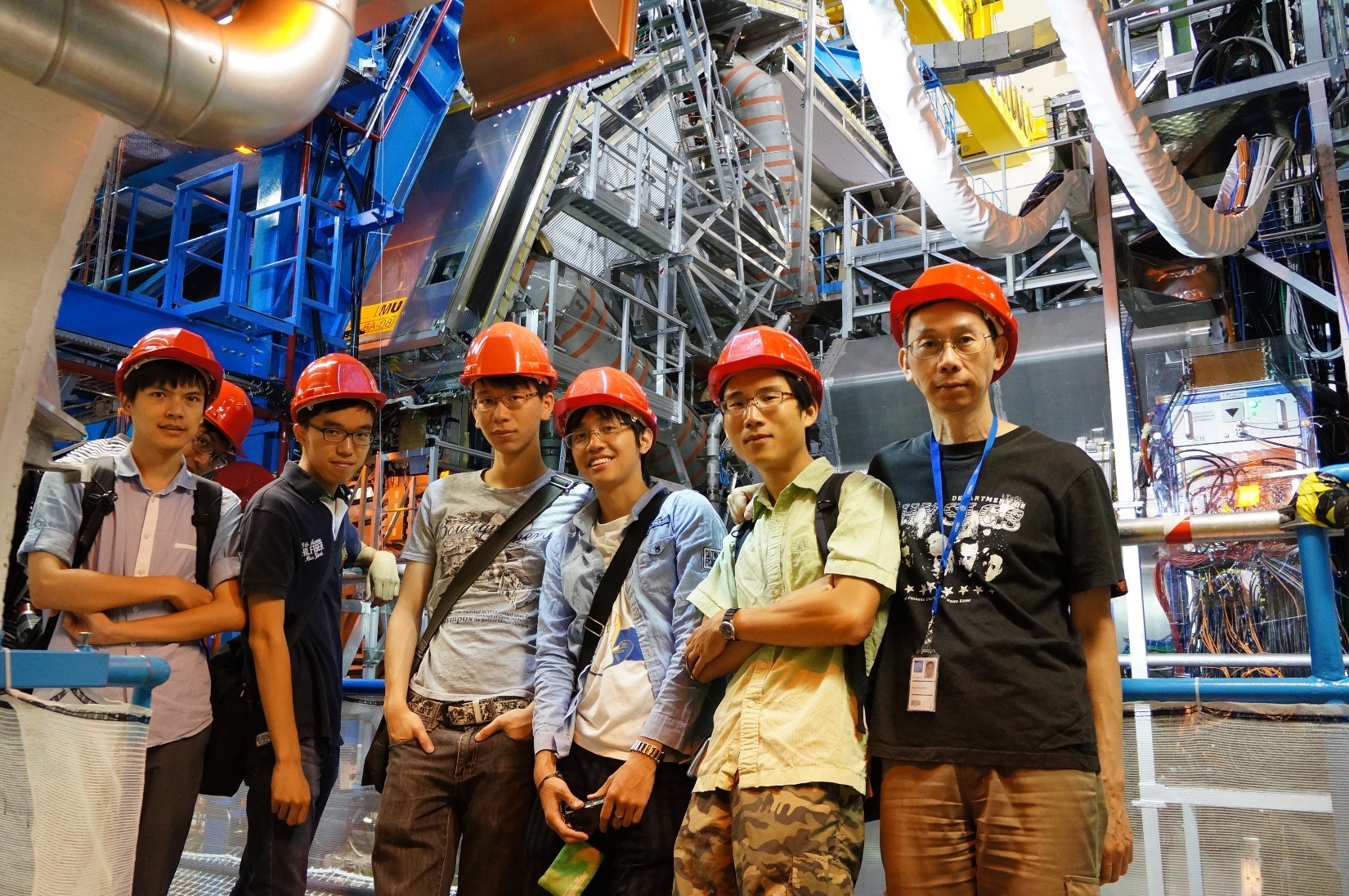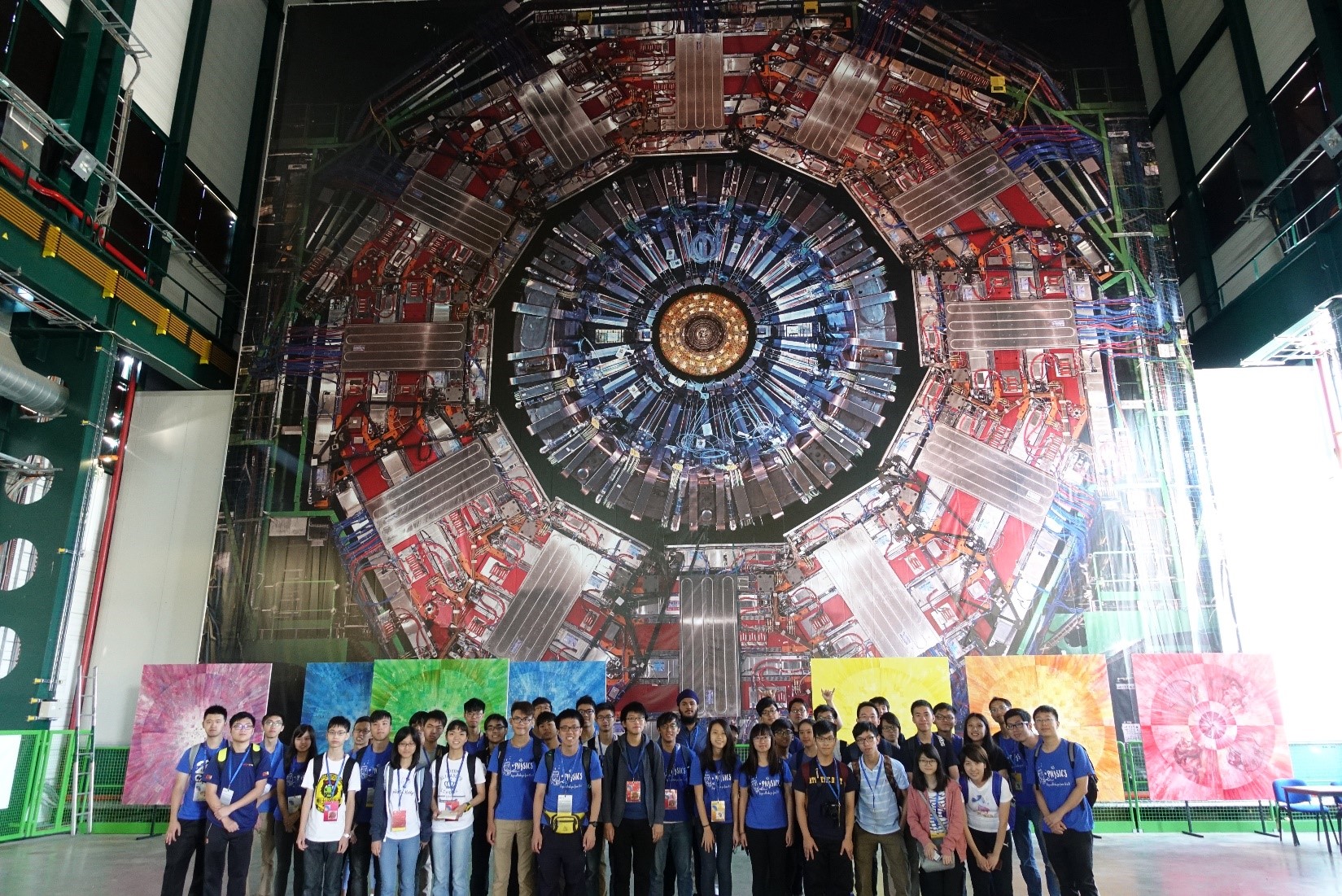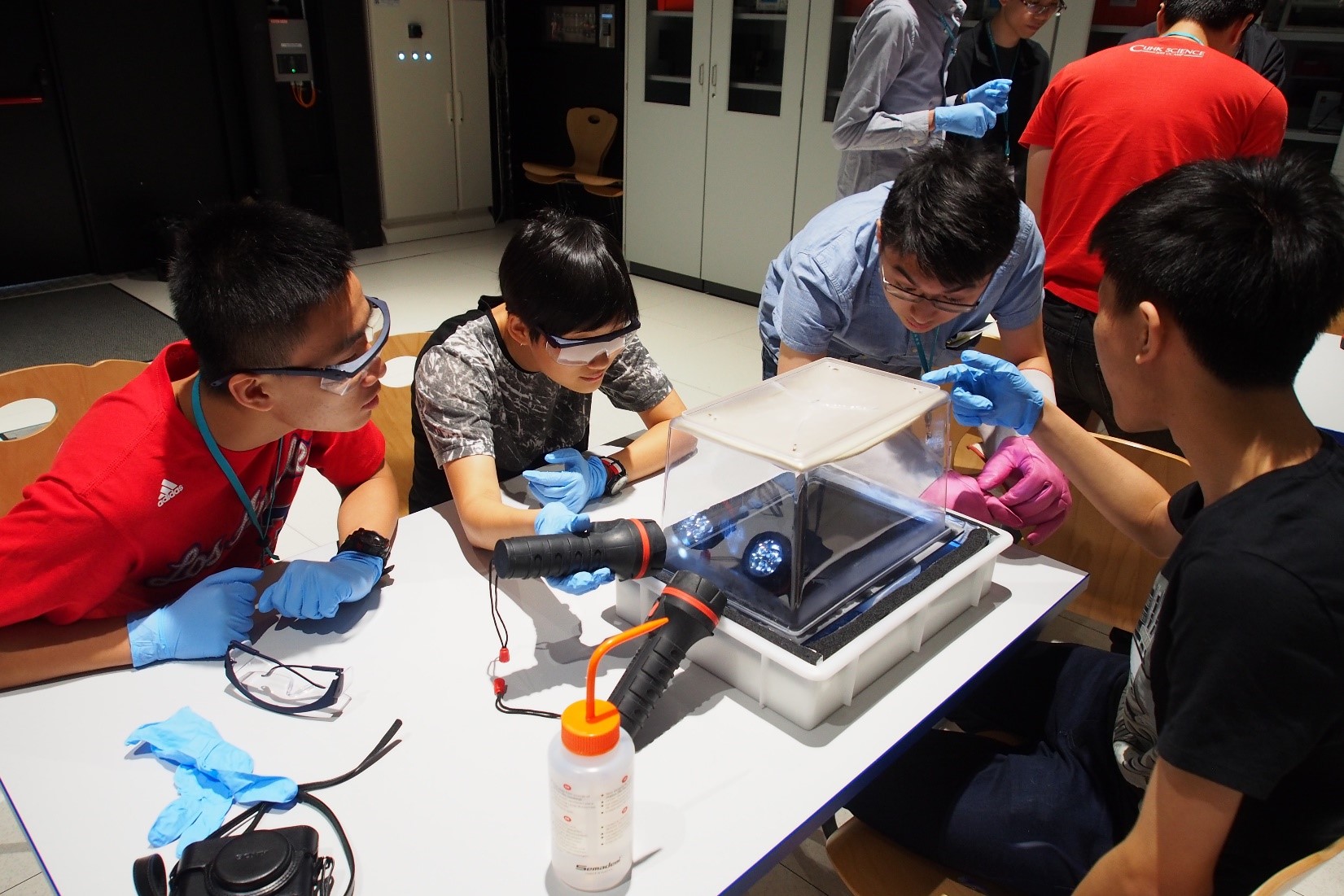Prof. CHU Ming Chung
Department of Physics
Our Eminent Scientists @ CUHK:
From Theoretical Physics to Fundamental Physics
It is not easy for one at first glance to relate a place decorated with countless books, potted plants, and Chinese calligraphy is the office of Professor CHU Ming Chung, a theoretical physicist. His interest in theoretical physics has long been developed since he was a student and been along with him when he began his career at CUHK in 1995. But many of us know of him because of his research on particle physics and his great passion for astronomy. It was all because of an important decision that he made two decades ago that brought Hong Kong particle physicists to become core research members in the Asia Pacific region and be at the forefront of research on particle physics.
The Turning Point in Research
Back in December 2003, CHU met with his friend, Professor LUK Kam Biu from the UC Berkeley and LUK came across the topic of the best neutrino research site in the world – the Daya Bay Nuclear Power Plant (“Daya Bay”) located about 50 km away from Tsim Sha Tsui. The Daya Bay demonstrated its superiority over other site candidates worldwide with its high nuclear capacity reactors and the favourable geographical location. The rock quality there is suitable for the excavation of underground tunnels and experimental halls which are large enough to place multiple identical detectors to reduce experimental errors. The three experimental halls, built inside the power plant surrounded by mountains, shield the cosmic rays from disturbing the sensitive neutrino detectors.
After learning that Daya Bay is a favourable site for conducting experiments on particle physics which he had never thought of before, the theoretical physicist decided to grasp this golden opportunity for Hong Kong to develop particle physics as a new research area with its geographical advantages. Then, he and his friend LUK recruited a group of neutrino scientists from all over the world to kick off the project. Since then, CHU has been leading scientists from CUHK and other local institutes to participate in the experiment. The decision which involved enormous manpower and resources, and had changed his research field into fundamental physics, was a tough one but he made it.
“Fundamental physics research is essential. It is all worthwhile if Hong Kong research team can make contribution to the particle physics research. It is also a kind of recognition to our local talented scientists who have not had the experience of participating in international experiments of this kind before.”
Since the Daya Bay Collaboration, CHU has been appointed as the Chief Investigator of the Hong Kong team and leading the team to contribute to various findings of neutrino experiments, including the establishment of the value of the third and final neutrino “mixing angle” theta-13 via the measurement of neutrino oscillation and the constraint on sterile neutrinos. There are still many outstanding problems in neutrino physics, such as the measurement of the neutrino masses, which is important for both elementary particle physics and cosmology. Neutrino physics may also hold the key to why there are so few anti-matter in the universe, a necessary condition for the existence of our world.
CUHK Physics students and Professor CHU in one of the underground experimental halls at Daya Bay, taken in front of the water pool hosting 4 antineutrino detectors.
“Go Global”
The efforts that Hong Kong team devoted are well recognised by research teams from other regions that they extended the invitation to joining the European Organization for Nuclear Research (CERN) to the team. In 2014, CHU led the Hong Kong team, comprising members from CUHK, The University of Hong Kong and The Hong Kong University of Science and Technology, to formally join the A Toroidal LHC Apparatus (ATLAS) under CERN and participated in the high energy particle collision experiment, one of the most prestigious physics experiments in the world. It is glad to see the team’s joining would substantially raise the profile of Hong Kong scientists and their global impact; but what impressed CHU most is the passion and enthusiasm of researchers there, if not the discovery of particle physics. Researchers put aside their different views on political issues and work together for the project; it seems that nothing will stop them in their quest for knowledge.
CUHK Physics students and Professor CHU in front of the ATLAS detector at the Large Hadron Collider, CERN.
Nurturing Talented Physicists
Scientific breakthrough takes time, let alone fundamental physics research. A research journey is usually a long one which takes decades to reach a significant milestone, and centuries to achieve breakthrough and translate scientific discoveries into applications in our daily life; but the process is always a fruitful one with new insights gained or technology innovated. For example, scientists developed laser from basic science research, which has now been translated to numerous civilian use. The fundamental physics research might be another epic journey which demands many more scientific talents and nurturing the next generation of scientists plays a pivotal role.
One of the most popular and attractive events organised by the Physics Department is the Summer Study Tour launched annually since 2016 (but was unfortunately cancelled in 2020 due to the outbreak of COVID-19). The Tour welcomes both physics students from CUHK and local high school students with keen interest in Physics to join. CHU, being one of the coordinators, recalled that he and his colleagues, Dr. Alvin LEUNG and Dr. LEUNG Po Kin took up multiple tasks to make the tour happen, including serving as the tour escorts and even babysitters, and snapping up flight tickets at midnight. Due to the reservation policy, he had to set the alarm for midnight to snap up the US domestic flight tickets via long-distance calls. All the hard work paid off when he knew that students were able to gain invaluable overseas exposure by visiting leading universities and research institutes overseas, interacting with frontline researchers abroad of whom many are our physics alumni, and participating in international collaboration experiments. He believes that the teamwork and communication skills of students would have honed after joining the tour and are the attributes essential to their future development. And he derives great satisfaction from this demanding yet rewarding task, as the broad smile on his face tells.
CUHK Physics students and students from Hong Kong Academy of Gifted Education visiting the CMS Experiment at CERN.
Students in the CUHK Physics study tour building a cloud chamber to observe cosmic rays at CERN.
Translating Impactful Research into STEM Education Programme
Creating societal impact from research beyond academia has become more valued in recent years. CHU is also working hard at transforming some of his particle physics research outcomes into impact other than academic through launching a STEM programme named “Masterclasses”. In 2019, the project “Probing the Fundamental Structure of Matter with High Energy Particle Collisions” led by him was awarded in excess of HK$78 million funding from the Areas of Excellence (AoE) Scheme under the University Grants Committee (UGC). With reference to the outreach activities organised by CERN, he designed a series of activities for local high school students making use of the data obtained from the forefront research, providing them a chance to participate in fundamental physics research and equip with hands-on skills across different STEM disciplines. He also extended the training to high school physics teachers to help them strengthen students’ ability to integrate and apply knowledge and nurture their creativity, problem solving skills, and collaboration, so as to cope with changes and challenges brought by the rapid development of science and technology. “Hong Kong students are very clever and smart. If we can work to arouse their curiosity and place emphasis on lifting their scientific spirit on top of the current curriculum, the overall talent training will be more ideal”, he added.
“Never Forget Your Original Intention”
Having worked at CUHK for more than two decades, Professor CHU becomes even busier starting from August 2020 as he is appointed as the Chairman of Department of Physics. Many of us know of his outstanding research achievement and high reputation earned in courses that he offered. He gets along with student; the physics lectures and general education courses given by him have also impressed many physics majors and students from other faculties. He shares the key to his success, which comes from a quote from Buddhism Hua Yan Jing, “Never forget your original intention”.
Nowadays, academic staff receives evaluation for their performance in the aspects of research, teaching, and service; junior or non-tenured faculty members may face pressure from the exercise. Even if you can meet different requirements and achieve milestones within a short period of time, how you feel and whether you find satisfaction from the tasks are still to be the most important. One might score higher in the course and teaching evaluation and secure a better career development if s/he could please the students; but how s/he feels and what students gain should not be overlooked, not to mention that students are in fact influenced by one’s teaching passion and sincerity.
Research is a lifelong career; focusing on interest in short term may only limit one’s potential and development. Following the proverb “Never forget your original intention” is “your mission can be accomplished”; faith can move mountains, hold your belief and it will lead you to the right direction.
Text: Angela HUNG | Editing: Cindy SUNG


